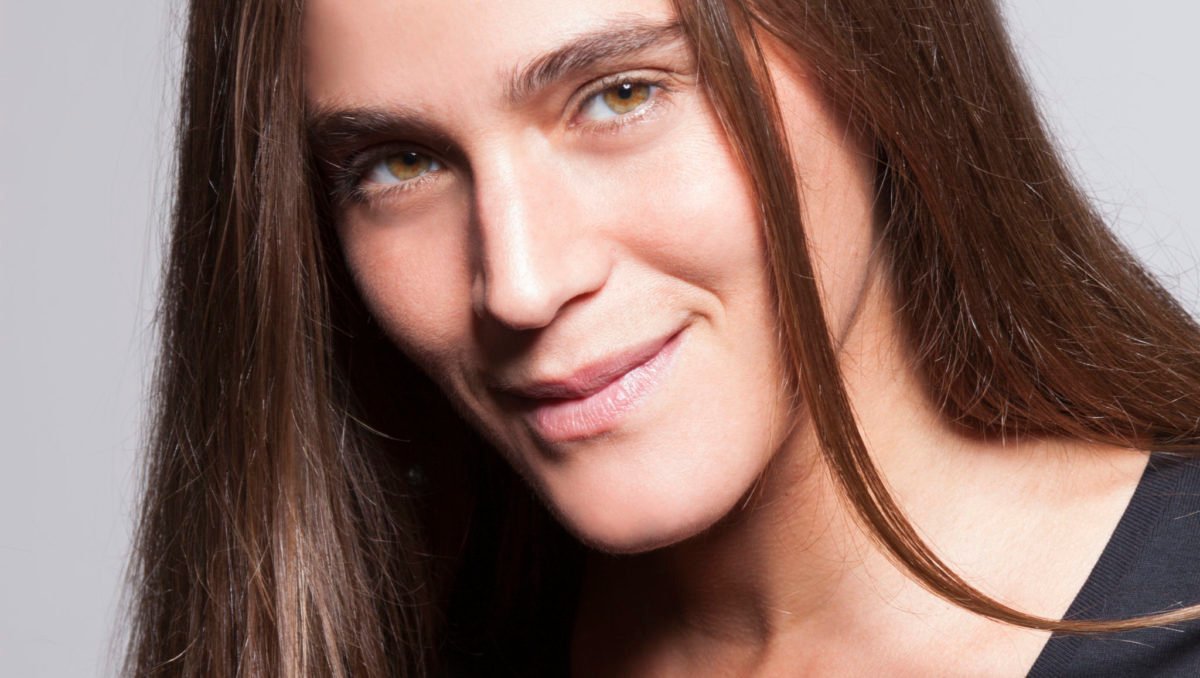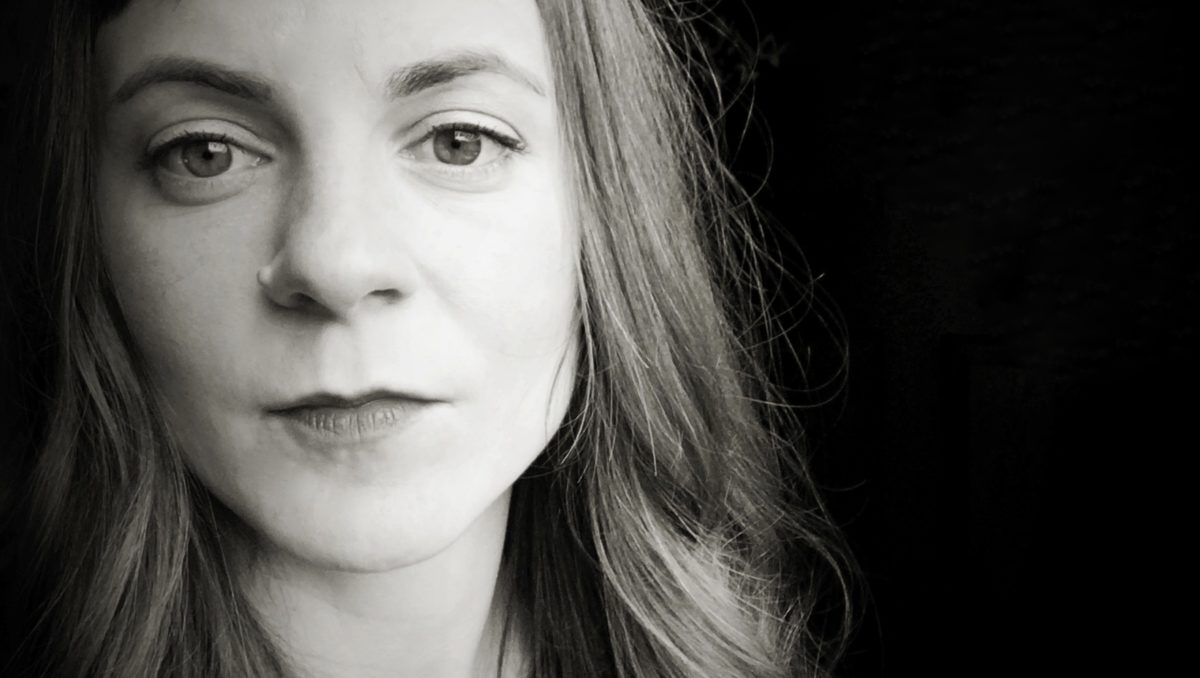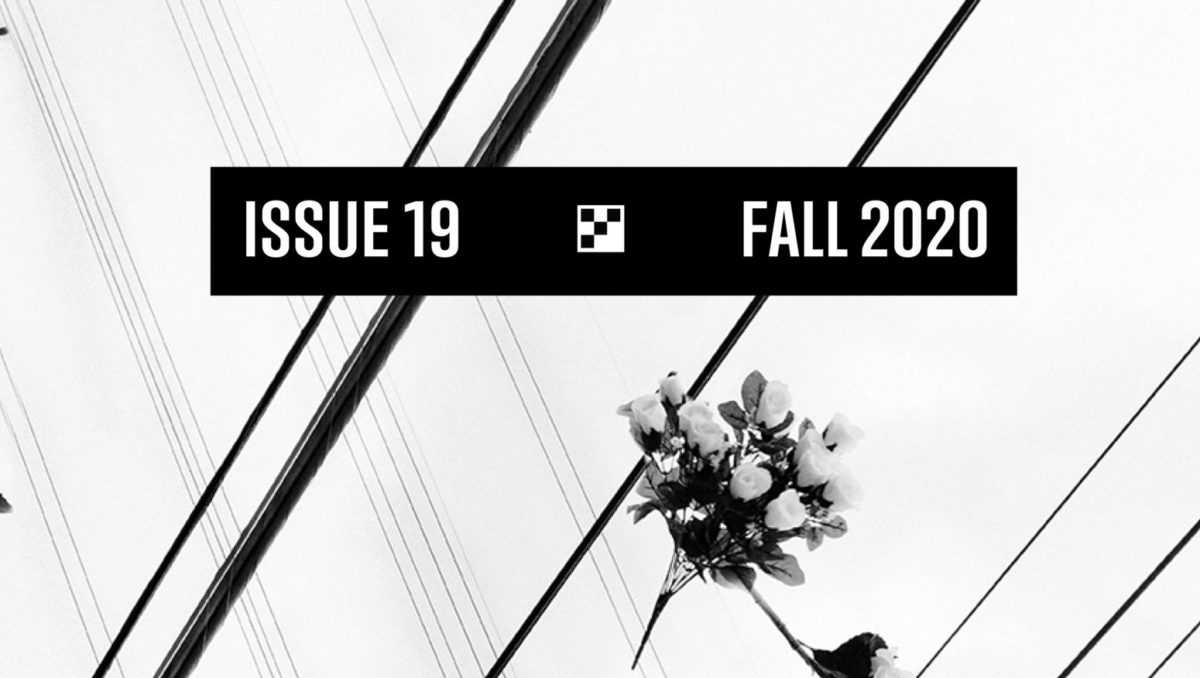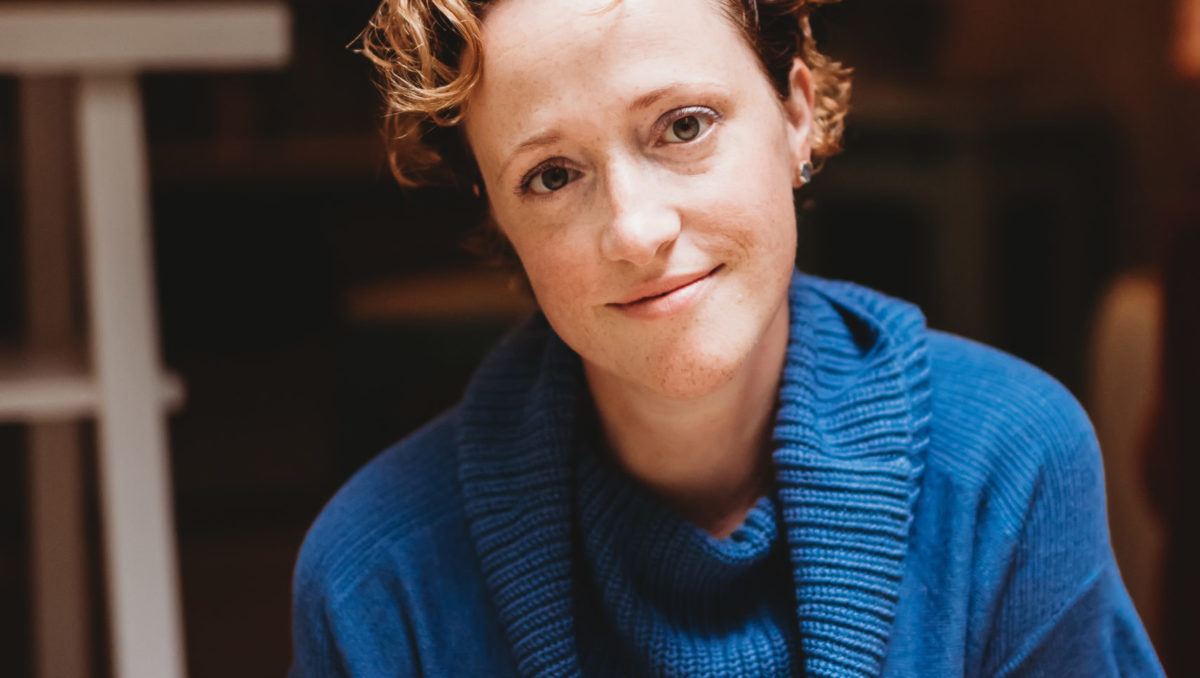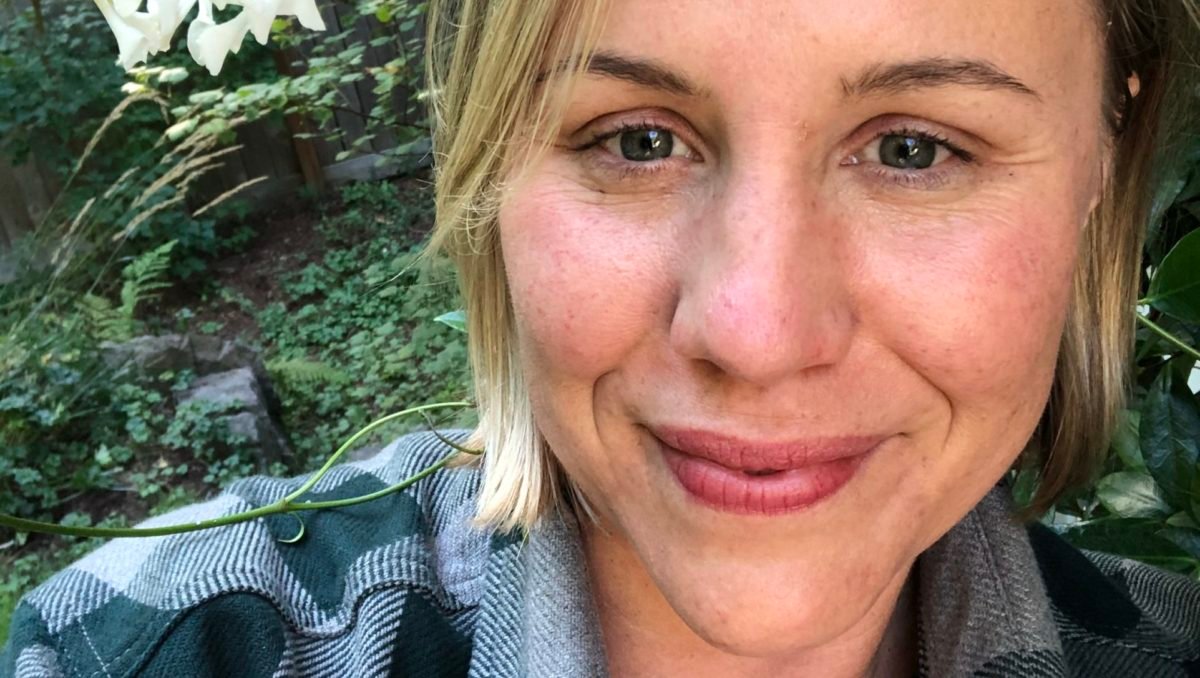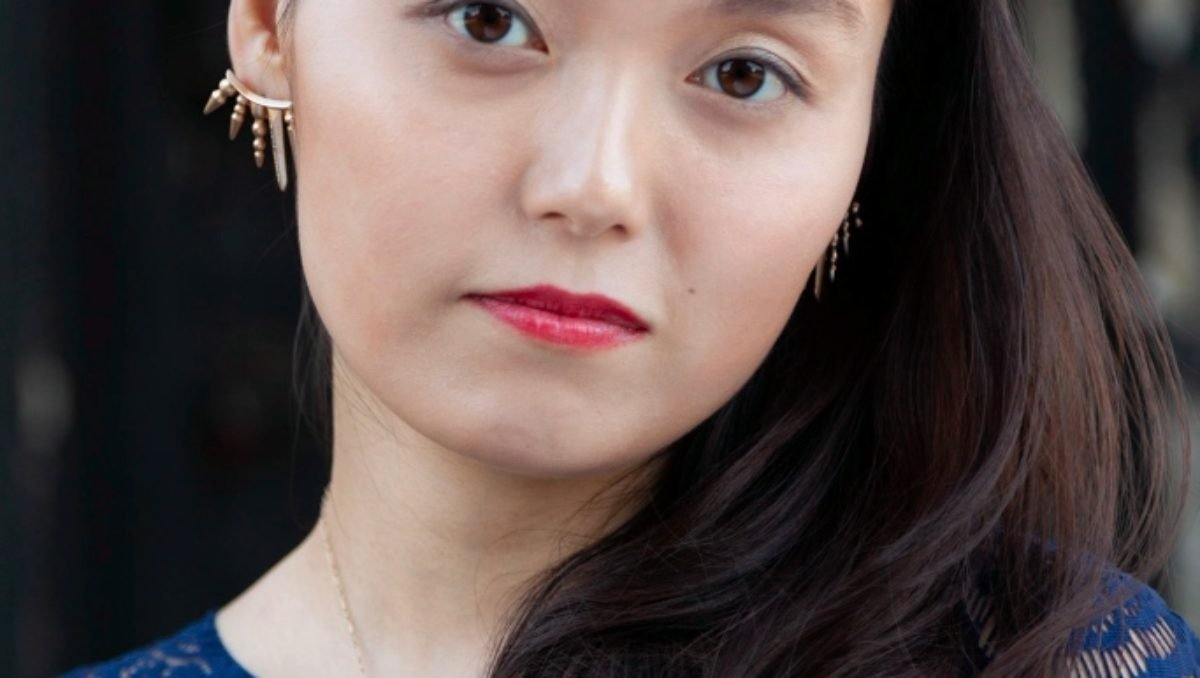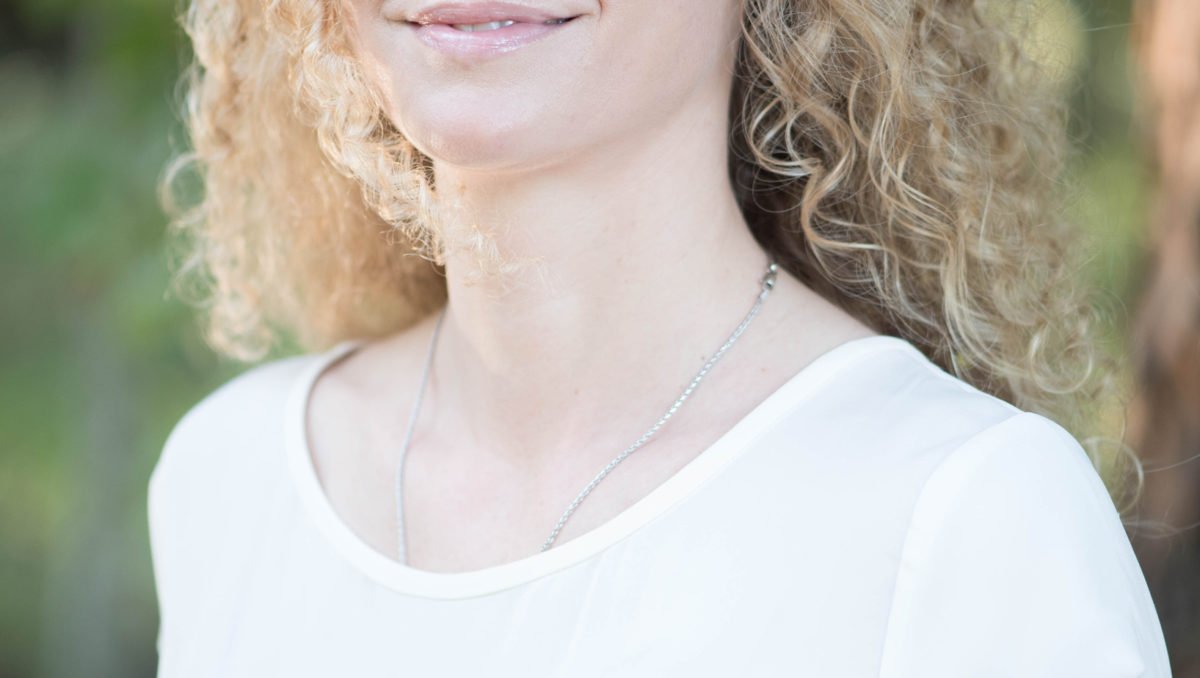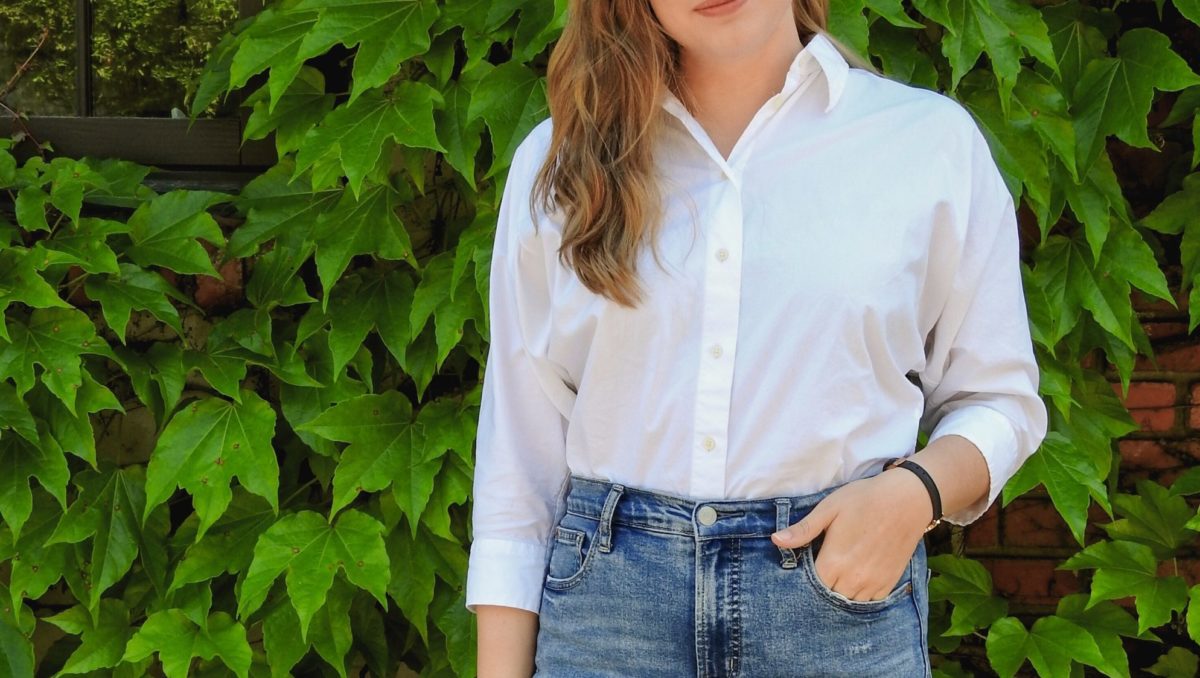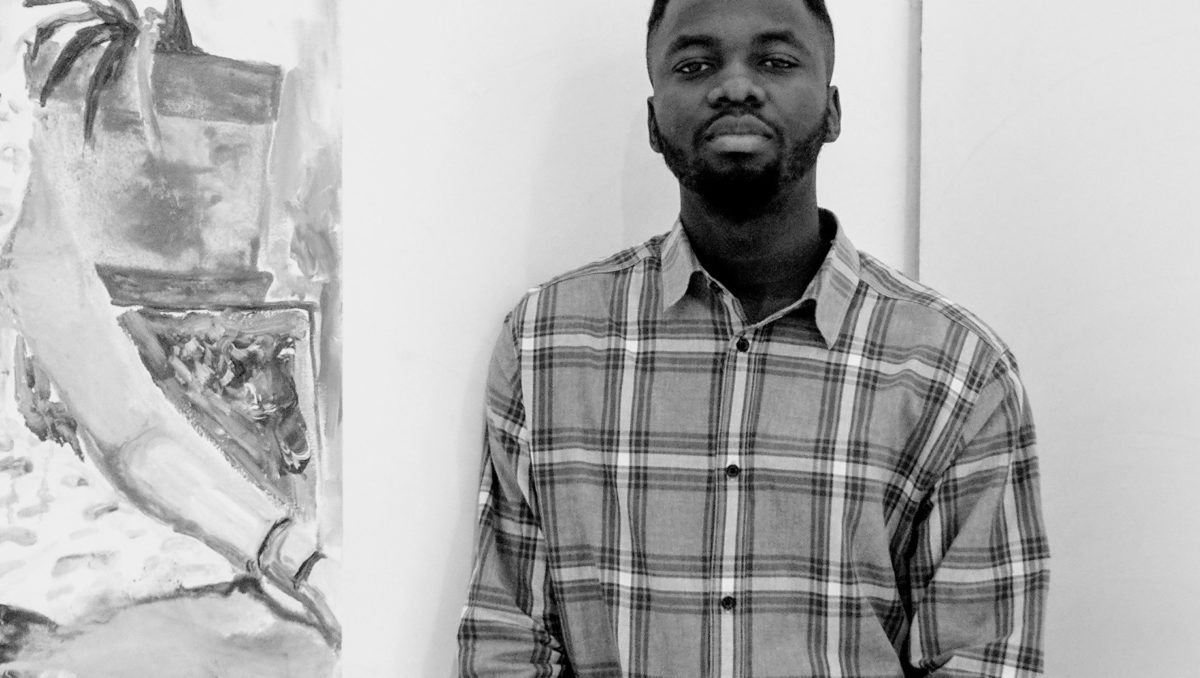SING, O BARREN ONE, WHO DID NOT BEAR A CHILD
—Isaiah, 54:1
Her hand sharp in the small of Hagar’s back, Sarai, that barren
punster, pimped her handmaid to her husband, saying, “As I am barren
please consort (bo-na, in Hebrew) with her” by literally saying,
“I shall be built up (ibaneh) through her.” A barren
women can still be clever, though rabbis tea-leaved this to imply
a childless woman is a ruined structure in need of rebuilding. Barren,
however, was not a ruin forced on us, but a path my wife and I have chosen. A choice
not so much against a child as for other things—our art, each other: a life barren
only of all we’ll never know. God said, “I’ll call you
by a different name and your destiny shall change.” Sarai, barren,
had no children but Sarah did. Mom is a name I’ve cried times beyond counting,
yet is a name I’ll never be called—less a name than a state of being; once borne,
innate as DNA. “Wife” or “writer,” though, are titles non-familial,
vocational, requiring daily upkeep, a renewal of Yes, I will still bear
this—and be stronger for it? Who can say. Perhaps we’ll end up
most defined by what we are not. Yet bared
by the roof of our ruined structure, we count the countless stars, grow
our shared life in place of bearing
a new one. Because before Sarah and even before Sarai
was the first of the three names she’d eventually bear:
Iscah, whose root might be sakhta, “saw,” which would make her sight a prophet’s,
divinely inspired, or is sokhin, a duller lot, meaning all “gazed upon” her beauty: barren
Iscah—precursor to the name Jessica—like all women, torn between being a seer
and being the one seen. So, prophet, tell me: Is the only happy ending really a baby?
- Published in Issue 20, Uncategorized
FOUR POEMS by Rosalie Moffett
READ THE PAIRED INTERVIEW WITH ROSALIE MOFFETT
IN SOUND MIND
A jet drags its noise
across my side of town, trawling
for something. Its shadow,
a small black insect, crawls
across house after house. Up and up, over
and over, a lithe little dark thought. I, too
have had a weeviling-through, my sunny
sensibility bedeviled by a pest. Up there, sky-high,
do you, as you go, know the feeling
you slough? Here, when you heft a sack
of flour and watch it cough
into the air one brown moth,
is your knee-jerk reaction Finally!
Some honesty! A thought can worm
and worm its own tangle of unseen tunnel
in the mind for years before things begin
to collapse. Before a word is allowed
out, flapping towards a lamp. Those dummies,
given the rotten meat up-teeming
with maggots, assumed spontaneous generation.
Now we know: flies. Humming thing aloft
in the air. Something descending
to seed a swarm of drear: what
even is the point or so what or what
have you: ruinous little voice-over. I drown
it out however I can. Once, I resorted
to a colander, accidentally fluffed
up a cloud as I sifted mealworms
from flour. Are you, like me, uneasy
with ruin? Do you feel a pity for the blue
your jet plane rakes through, or for me,
whose single-edition sky is getting striped
with white scrapes? Listen, I need to stop
making up gods to talk to
who can’t hear me. Sorry for conjuring you
too aloof, earmuffed and far—
I don’t know how else to be
authentic to my experience. Forgive
me my mind’s circumscribed
design of you, made quick in the shadow
of a small, harmless darkness. Sometimes
one bleak thought breeds in the mind.
No one actually knows, I was shocked
to learn, why moths spiral
towards artificial light—perhaps
they are making
the same mistake as me, desiring
just one moment to speak with
what ruins them.
ODE TO JESSICA
For Jessica Farquhar
If you’re ever in trouble,
find a mother, said Jessica
to her child, refreshing
my predilection for animal videos
where one is raising another’s young,
e.g. the cat with kittens
plus a duckling & the voice
behind the camera announcing
in wonder: it arrived right as she gave birth, like,
get the timing right, a mother
will mother anything. Like,
flip the floodlight & everything
lit up is up for nurturing. Thousands of videos
like this, I swear, exist, inadvertently or deliberately
buttressing her advice in a world
where it’s unwise
to find a policeman or CEO or comedian
or president. America’s
fertility rate is down, the daunt
of saving enough to stave off
progeny-debt is enough
to stall even the reckless.
I’ve a dim view, but it’s true
my brain’s been re-routing frustration
and bungling through a process
that, magic-8-ball-like, produces
the solution: have a baby. Little wailing
thing. When feeling low, I scroll
through online lists of expenses
for the first year of life. It never fails
to make everything worse.
Once, I read an article
about a woman who joined
a search party searching for her. For hours,
she looked for herself.
I am supposed to be finding a mother.
I’m staring at the blank in my bank balance.
God knows the best prayers
one can say in America are to the patron saints
of student debt, of Ca$h for Gold,
of the lowest of the low
deductibles. Oh, God knows
I know the last thing
the world needs is more
people, it’s so full up with policemen,
gun nuts, florists, pundits, artists,
landfills, Jessica, kneeling
face-level with her son, Jessicas
ready to kneel face-level
with anyone’s son.
TAXES, ICECAPS, CROCUSES
In the bank account, it is
unseasonably mild. The businessmen
who live there rarely break
a sweat, whereas it is, elsewhere,
unseasonably disastrous. Wildfire.
Flooding. Diseases unreasonably
rising up, little ghosties, from
the permafrost melt. It is everything
anyone talks about, though the seasoned
businessmen never go anywhere
near the copier, the water-cooler, the arenas
of anyone. Meticulous, they maintain
their distance and their coin
-colored comb overs coiffed into hieroglyphs
of I’ll be dead before any of this
shit hits the fan. By many accounts, an account
is a story, and thus money is a moral
available solely to an upper crust mostly
into fan fiction: Goodnight moon. Goodnight
congressman. Sayonara taxes,
icecaps, crocuses. The bank account can be
summoned by the right spell of two
point authentication—presto: see the men
gazing through the boardroom
window at the view, which is the mountainous
horizon, which is a jagged line graph.
X-axis: months. Y-axis: the accrual
of funds. In the bank account,
there’s a potted plastic palm whose leaves
shift in the manner of blades catching light
in a knife-fight. The businessmen take
solace in the view, they take
turns watering the palm, they take money
and turn back to the window. They keep
the money. They keep watering. Water outside keeps
rising. Inside there’s a weird black spot
developing on the carpet. They were told it was there
to give them a sense of the exterior world.
They were informed that it was, for their safety
decorative. This was about the palm
whose faux trunk pokes down into styrofoam.
But in the bank account, they don’t listen, which is
corporate policy, which is for their safety
and to maintain their equilibrium in case
a message weasels in from the gate
intercom re: some faulty product, some leaky
lifeboat in the polar ice cap
melt. Despite that, and also though
they were sure they’d made, as young men,
strict provisions against such an act,
they were beguiled
by the idea that they might
nurture one quiet thing. They keep
watering. The mold loves the moisture, the micro-
fiber playground, it throws its personal confetti
of deadly spores. Even now, it advances
over the carpet, army-crawling
towards the loafers with the slit at the toe
where, tucked, is a hundred dollar bill. Suppose
this is a fable. Moreover, suppose there is a moral
to be made from the world
anyone can imagine, a lesson, a hinge
between it and the inside
of the mind. Suppose you entertain
this idea for your own comfort
in the manner of tending
to the kind of plant that, turns
out, grows more and more
suspect the longer
it neither blooms nor fruits.
NEST EGG
Logging in to check the pie graph
of one’s 401K: boring miserly pastime
of the 21st century. No lovely clunk
of a gold doubloon, just Scrooge
and his TIAA CREFF password.
Just Scrooge McDuck and his new bird-body.
My first time in Georgia it was August
& I was aghast at the snow
floating in the blue sky. (Hide your eyes,
McDuck, each time we find ourselves
driving in the wake of a chicken truck.)
Point is, most miracles
can be pinned on other people
amassing money in offshore accounts.
Once, I saw rocks light up on the bank
as the surf crashed in: true phenomenon
of phosphorescent plankton. Once, the power
went out in a packed stadium,
and the ring of stands fired up with that exact
blue-white plankton-light from flipped
open flip phones. From above, there must’ve been
one shining eye in the pitch black
of the rest of Dakar. The pie graph
is a joke: it shows only what you have now
as if that’s enough to illuminate enough
of a patch of the quiet dark
of the future. Ah, Scrooge, I know
the balm of a tall stack of coins. I, like you,
have a nest of fear. I like you best
as a bird. I read how domestic ducks
neglect their eggs, which must be
electrically incubated. Warm bulb which nursed
current from the wall-socket to make you
take form, made you take all the currency & hold it
to the light to see if it could be changed
from coin to mirror, from mirror to periscope
to peer into the unknown. Ah, Scrooge, it feels
like it works, doesn’t it? You were the first
duck to dip your spatz into an olympic pool
of money—even as you dove, even as the children
rubbed, in disbelief, their fists across the dollar signs
in their eyes, someone watched
the scales shift, felt the digits of the budget
loosen their chokehold.
- Published in Monthly, Uncategorized
INTERVIEW WITH Rosalie Moffett
READ THE POEMS PAIRED WITH THIS INTERVIEW
FWR: In my first read of “In Sound Mind”, I was struck by how you play with sound throughout the poem (such as the lines “Up there, sky-high,/ do you, as you go, know the feeling/ you slough?”). Can you speak about the growth of this poem? How does consonance (and dissonance!) influence your process– if at all?
Rosalie Moffett: I think I’ve been gravitating towards letting sound lead the way during this particular political period, and this pandemic—I’ve been angry, sad and with something overly simple to say stuck in my craw. Which makes a boring poem. A hallway you can see the end of from the beginning. But to let sound in as a guide gives that hallway some doors, some new avenues. There are then things behind doors that I have to shift in order to see. It opens rooms in my thoughts I didn’t know were there. Which certainly happened in this poem.
And (if you forgive me my wandering into some more conjectural territory) back in high school when I was obsessed with the weird experiments conducted in service of psychology and sociology, I remember learning about cognitive dissonance. In one study, participants were asked to either hold a pencil by pursing their lips, or in their teeth, like a rose. Rough approximations of a frown and a grin. They were then told jokes. Those with the pencil in their teeth found the jokes funnier. In short, the brain said “I must think these are funny, I’m smiling.” The brain likes to follow the body’s lead. Out loud, the mouth makes a rough smile in weeviling, feeling, bedeviled. Makes a rough frown when saying I don’t know, No one knows. I say all this not to claim my poems are smart enough to play these sounds like an emotional piano, but to offer that the sound of a poem might be working on our cognition in ways that are deeply layered and complex. I trust it to lead me through a poem.
FWR: There’s sly humor in these poems, particularly in “Nest Egg” with its addresses to Scrooge McDuck, that carves a new path to the emotional heart of each poem. It serves to buttress the associative leaps you make through the poems and expand on the emotional surprise. How do you see humor in your work?
Moffett: Humor is the PPE gear my mind wears, the way I can make something dark harmless enough to look at. There’s that old chestnut: tragedy + time = comedy. Often, when you’re too close to something, you can’t see the humor in it. If you train yourself to see the comedy, it’s like instant distance. (Instadistance™) You can see how humor could serve as a survival tactic, a jetpack out of actually facing something–and I think there’s a danger of that to be aware of in writing poems. But it’s also, I think, a useful way to gain perspective. Make something funny, and you can look down at it as if from a great height. What is also true is that this training (if you’ll let me call it that) makes a 2-way street. You can zoom in and see the tragic in something that, at first, seems funny. Scrooge McDuck? A duck obsessed with something he can’t eat? Swimming in coins? Oh, honey. What have we made.
Some of my zooming-in involves digging into granular and aspects of things populating my poems. Little of my “research” ends up in the poem (and I defy any algorithm to make sense of my internet searches). For this poem, I did a lot of reading about the character of Scrooge McDuck (yes, his was the first depiction of a swimming pool of money) and got to feel kind of close to him, a kinship. At some point in his history, he changed–someone took pity and shifted him from a miser (clinging to what he couldn’t even make use of) into a philanthropist. I wish that same hand would take pity on me.
FWR: I love your last images, whether Jessica kneeling with “anyone’s son” or the plant that neither “blooms nor fruits”. How do you know when you’ve ‘stuck the landing’ in a poem? Are there poems that you admire for their endings?
Moffett: If only, like in gymnastics, one could look up and see the score from judges!
I think what I look for is that feeling that my mind is standing, so to speak, on a new patch of land. A new vantage point. A poem, uniquely, is a negotiation with white space, with absence. Each line and stanza break are little perches from which to consider that absence. And that last line is where the reader stops, as if at the edge of a cliff, to look out. If there’s something still ringing, something hovering in the mind’s eye, demanding attention, OK. Good.
The cliff came up suddenly in Carrie Fountain’s poem “The Jungle” and then there I was, looking over the edge, ringing.
- Published in Interview, Monthly, Uncategorized
ISSUE 19

POETRY
COMMENCEMENT SPEECH, DELIVERED TO A HERD OF WALRUS CALVES by Matthew Olzmann
TWO POEMS by Melissa Crowe
TWO POEMS by Ariel Francisco
BALIKBAYAN FILLED WITH THEORY by Dujie Tahat
TWO POEMS by Keetje Kuipers
IF YOU ARE READING THIS by James Hoch
SIX ECCLESIASTICAL LOVE SONGS by C.T. Salazar
A POEM WHERE GOD IS A PARABLE by Jay Kophy
VENUS DE MILO WITH DRAWERS: SELF-PORTRAIT MADE OF MINK & PLASTER by Caroline Parkman Barr
MEMORIAL DAY by Chelsea Dingman
I USED TO PRAY by Yuxi Lin
TWO POEMS by Jessica Johnson
FICTION
EXCERPT FROM THE HISTORY OF LITERACY by K-Ming Chang
MONSIEUR REYNARD by Holly M. Wendt
ALL WE HAD TO DO WAS SWIM by Jon Bohr Heinen
ART
FOUR WORKS by Suzanne Koett
- Published in All Issues, Issues, Uncategorized
SIX ECCLESIASTICAL LOVE SONGS by C. T. Salazar
heaven is a compound
word
the sun sunders
us dazzling
so you don’t have to
wonder what wound
I’m showing
:::
heaven-heavy
like
a cello’s hello—
/ heaven-heavy
like an animal fond of its own
fur.
:::
A cello’s hollow
that’s what it felt like
breathing with you
in the dark
:::
heaven is a compound
but not the one we’re in
we were called heathens in another myth
hello whatever wound we answer to now
:::
the language of electricity was
the language of prophets
a conduit for the power to pass through
I’m all steeple at your lightning
let us tremble cellos
at your touch
:::
the river knowing which way to go
without any godspeed to spill
heaven: clouds marigolding softly
:::
birds drones butterflies a jug
of water anything
could get over that fence
- Published in Issue 19, Uncategorized
TWO POEMS by Keetje Kuipers
IN THE OUTDOOR SHOWER WITH MY PREGNANT WIFE
The old frisbee from Burger Chef, once red
but faded now the pale pink of my wife’s
widening aureoles, lies upturned
beneath the saltwater drip of our sagging
beach towels. This world is full of objects
succumbing to the gentle ebb of decay. But her body—
loosening breasts and blue-veined thighs caught
in a cascade of wet light as she turns
beneath the showerhead’s senseless spray—
is not one of them. That low-blooming
shudder and heft at her hips can’t compare
to her belly button’s skin stretched taut
and thin, become the pale sail of a boat
screaming into harbor. I am here
to praise the way in which everything
I have ever loved about her body
is about to be ruined forever in the breaking
open. Tonight the wind will come up,
turn the towels on the line into fat bells,
churn the waves into a froth, drag the sand
out and leave it where our toes can’t touch.
In the morning, the ocean will return
to its languid sheet, but the beach will be strewn
with the wreckage. I want already
the body scarred by stretch marks, the extra flap
of skin to hang soft at her waist, the feet
that will never again be quite so small.
I want to worship the body after the storm,
the one I’m imagining already
as she unfolds the straps from her shoulders
and peels the suit off, her skin covered in
those minute and glittering fragments of shell
some people insist on calling sand.
WITH GARBO IN PALM SPRINGS
We’re at the resort, the one with the forty-one
pools, and it’s night so if we were up in the swaying
fronds of a palm tree the ground would stretch before us
a green freckled thigh against a dark sheet. But Greta
and I are inside, perched on the edge of the bed
watching my wife sleep. She’s beautiful, we agree,
and my daughter, too, their blond hair spread against
the pillow like a silk scarf in a silent movie.
Though now Greta’s impatient with all the watching,
the kid especially, so we go outside to smoke
her cigarettes, to lean our backs against the white
adobe walls and kiss for as long as it takes.
The electronic lock clicks behind us, a set
of perfect teeth, and I’m chasing Greta across
the lawn with its lemon trees I can smell in the dark,
past the lounge chair where someone’s abandoned
the sort of wide brimmed hat meant to keep us young,
over the patio still warm as skin from the sun’s
relentless shining, toward the place where she’s already
slipped off her dress and climbed into the water,
side-stroking with one arm and holding her smoke
aloft with the other. And if I say it’s a dream,
it will have no power. And if I say it’s real,
no one will ever believe me. But can’t it
be both? I want to rub my body against her
perfect one. So I do. All my nubbly parts sanded
down against the smooth monument of her form,
ageless as the desert once was before we came here
and turned it into a golf course. Now only
my hunger—its vast, unquenchable fury—
interrupts the glow of each long leg as she traces
eggbeater circles in the blue depths beneath her.
- Published in Issue 19, Uncategorized
ART by Suzanne Koett
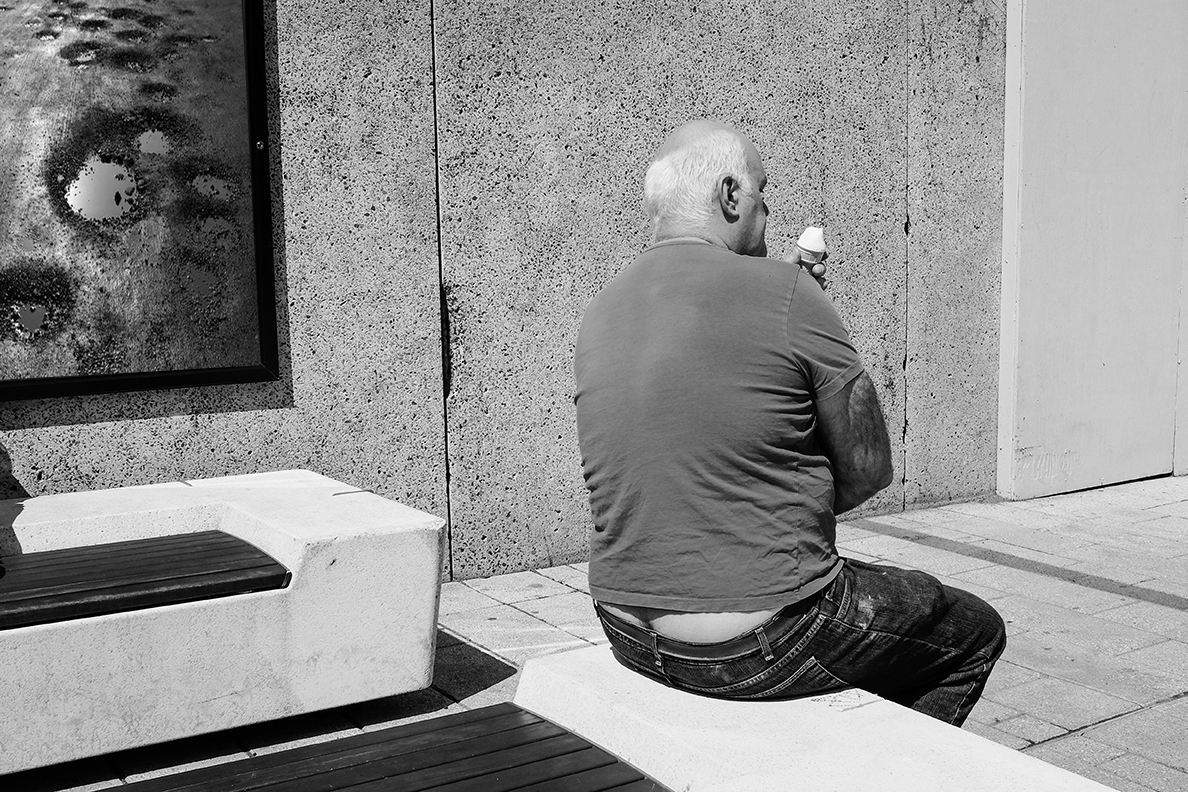
“Cone and Potholes,” archival inkjet print, 11″ x 17″, 2017 by Suzanne Koett
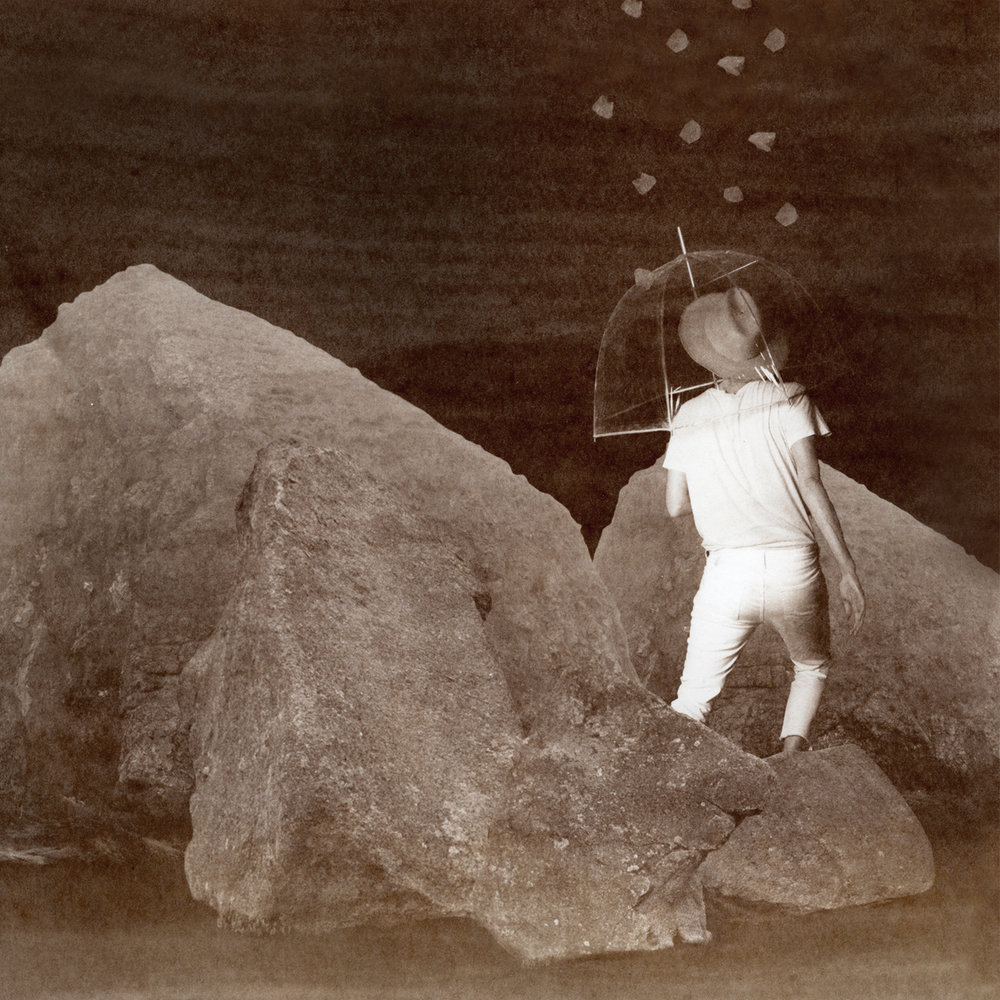
“Track 3: The First Season,” digital, collage & Vandyke brown print on archival watercolor paper, 8″ x 8″, 2018 by Suzanne Koett

“Fox,” Archival Inkjet Print, 11″ x 17″, 2018 by Suzanne Koett

“Powerlessness,” Archival Inkjet Photograph, 20″ x 30″, 2014 by Suzanne Koett
- Published in Issue 19, Uncategorized
TWO POEMS by Jessica Johnson
UPDATE
The boy builds a four-throated fish
out of cardboard. The fish lips
flap, blue-taped, from a body that
carried bottles. See! He says
a large-mouth bass. I’d have smiled once
(inwardly of course) at his fine
imaginary, thought him unspoiled, amusing himself
with the trash.
Wasn’t I doing a good
job? The boy, a living sign that I could refuse
the invisible purveyors who would sell him
dopamine hits & strangling masculinity with a side
of fried sugar? The things we buy
without knowing. But this is a cool
summer, air and skin the same, enough water
the rose taller, the jasmine tendrils
longer. The soft white sky.
I ought to love it. There’s no war now
except the usual one
& death like age is just a number
that rises. I walk every morning
& the number rises. We finish our assignments
& the number rises. We reply to your message
& the number rises. We build a fire no one
may gather around. What can you swallow
with four throats
that you couldn’t swallow with one?
The same things, but smaller.
BAD INSURANCE
One trimmed off his own name
to hide his Irishness.
One wrote white
instead of mother’s mother was
instead of no
right designation. One dressed
like a shark, smooth suited, pressed
& pale to compensate
for parents who grew
in foreign soil
on preserved fish & sometimes stank of it.
My people were damned
successful at leaving themselves behind
rushing toward a shrinking
field of safety just inside the blade
of cooling sunlight even
as night came on.
And me, years ago when I had bad
insurance, I saw a doctor for a raft
of pains, a strange doctor
but official. She said the way I move’s all
wrong: from the edge not the center
as if I could just decide a thing & make it so
without getting too close without risking parts (belly, heart)
I couldn’t lose.
She said my problems come
from a thumb too quick
to pin something under it.
- Published in Issue 19, Uncategorized
I USED TO PRAY by Yuxi Lin
to any God that made me
feel ashamed.
Girls are takers,
Mama used to say.
I took every lesson
she gave me, learned
to swim out of my body
& abandon it.
With incense I burned pages
until a perfect eye stared back.
God drilled a hole to make us see.
See? Mine is filthy.
He, too, eyed me
each day afterschool,
clutching the line to the lure.
When I walked by
he’d catch me & groan
Oh you’ve grown so heavy.
Like his breath, his fingers
were meaty & thick.
For years I weighed myself
then I weighed myself down.
In the water, my scaled body
lay bent & murky.
Listen — Don’t believe in God
unless he admits
he was always watching.
Look back at him.
If he had my courage
he’d choose to be born
a daughter.
What am I begging for?
I have two mouths.
One remembers.
Neither forgives.
- Published in Issue 19, Uncategorized
MEMORIAL DAY by Chelsea Dingman
Not the storm, but the calm.
Not the flurry of attention
called to the sky.
Not the rumour of a hurricane on the horizon.
Not humidity, the mosquitoes rising
like smoke from the fields.
Not a history of revisions we call
love, or survival.
Not the children lost and discarded.
Not the borders that hostage them.
Not how we were once possible
under this tyrant
sky, the familiar sorrow of the fields.
Describe our self-importance.
This awareness that travels us like a siren.
Why the live oaks drown in brown pollen
gripping the streets.
Who else will wash this mess clean?
Laundry-damp, our houses.
Thick with spoiled food and loneliness.
In times of love and crisis, we’ve been
the most alone.
Planes take off without us.
Children flit between namesakes like wasps.
We miss what is ours while it is within reach,
along with the dim sound of thunder
in the distance, storm drains already chuffing.
Let any absence mean we are loved.
Let the rain come soon, and be done with us.
- Published in Issue 19, Uncategorized
VENUS DE MILO WITH DRAWERS: SELF-PORTRAIT MADE OF MINK & PLASTER by Caroline Parkman Barr
Each morning is the same
but I can’t help but look again and again:
skin smooth peony petal, vanilla-ice-
cream-cool; hair a ripple of milk pulled back
too tight (though sometimes I forget the aching);
even my eyes are eggshells. Only air where arms
should be, dimpled seams of unfinished
making I’ll never forgive, but the sling
of this sheet hugs my hips in the perfect
place that says, Hey, I can still be sexy.
Then, there are the drawers: forehead,
breasts, ribcage, stomach, my left knee—
the edges to my curves only someone else
can open—nipples, belly button, each knob
a puff of fur to touch and pull. I’m told
they’re so, so soft. Everyone wants to look
inside, and sometimes I let them
just to feel the rub and jolt, just to see
their faces when they find my secrets,
find their own. My favorite part is when
they shut me, shaking my spine so hard
I almost crack—and for a moment it feels
some part of me could change.
- Published in Issue 19, Uncategorized
A POEM WHERE GOD IS A PARABLE by Jay Kophy
The absence of faith is the beginning of death.
What I call flesh is prayer bound to my bones.
All my prayers begin as songs from my bones
and end with blood instead of amen.
How I wish I began every request with amen,
like when I ask God to let doubt pass from me.
Amen. Oh God. let this sea of doubt pass from me,
for I’ve tried walking on water & almost drowned.
In Noah’s ark, a lost name is replaced with drowned.
In Ghana, anyone who drowns is without a name.
What is the value of a life without a name
to those who believe in what they can only see?
To those who believe in what they can only see,
the absence of faith is the beginning of death.
- Published in Issue 19, Uncategorized
